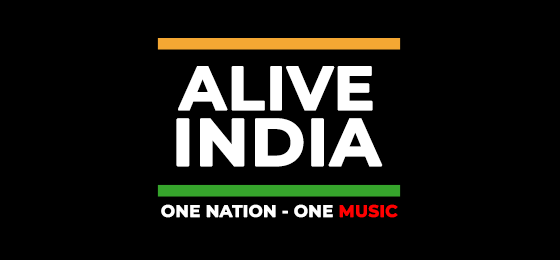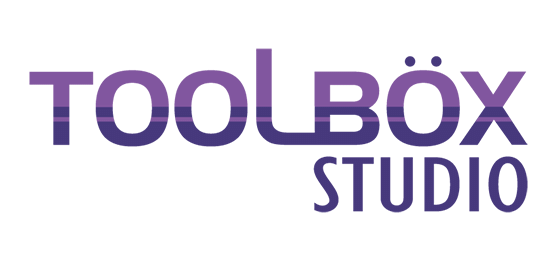STUDENTS SUCCESFULLY PLACED AT









When stepping into a new environment, you are often unsure about what to expect. This section will address most of your apprehensions, and will help you gain a better insight on what to expect from us.
International Business refers to commercial activities that involve cross-border transactions of goods, services, and resources between two or more nations. It encompasses trade, investments, and market expansion strategies on a global scale. International business professionals work to optimize global supply chains, manage foreign market operations, and develop competitive strategies for multinational corporations. The main aspects of international business include:
BBA in International Business is an undergraduate degree program that focuses on the study of global business strategies, foreign trade, finance, and international market operations. Students gain knowledge in business analytics, economic policies, foreign investments, and international market trends.
Aspirants for BBA in International Business can benefit in several ways, including:
Graduates find employment in multinational corporations, export-import firms, financial institutions, and government trade bodies, with an annual salary ranging between INR 3,00,000 and INR 15,00,000, depending on experience and specialization.
International business management involves overseeing global business operations, understanding trade regulations, and implementing global marketing strategies. The key functions include:
To excel in international business, professionals must possess essential skills beyond academic knowledge. These include:
International business offers diverse career opportunities across industries such as finance, logistics, trade, and consulting. Graduates can work in:
A degree in International Business opens up a variety of career paths, including:
The salary in international business varies based on experience, industry, and role. According to industry reports, the average salary for international business professionals in India is around INR 7,50,000 per annum. The salary range starts from INR 3,00,000 for entry-level positions and can go up to INR 25,00,000 for experienced professionals in leadership roles.
A successful career in international business requires continuous learning and practical experience. Here are some key steps:
Selecting the right business school is crucial for a successful career in international business. Consider the following factors:
A BBA in International Business equips students with the knowledge and skills required to excel in the global business landscape. With the right education and experience, professionals can make a significant impact in international trade and commerce.
Digital marketing is the practice of promoting products, services, or brands using digital channels such as search engines, social media, email, and websites. It involves strategies to engage customers, build brand awareness, and drive sales through online platforms. The key components of digital marketing include:
BBA in Digital Marketing is an undergraduate program that provides in-depth knowledge of online marketing strategies, consumer behavior, and digital tools. This course equips students with analytical and creative skills to create impactful digital campaigns. Key benefits of pursuing BBA in Digital Marketing include:
Graduates can explore career opportunities in digital marketing agencies, e-commerce businesses, multinational corporations, and startups with an annual salary range between INR 3,00,000 and INR 15,00,000, depending on expertise and experience.
Digital marketing involves a range of activities to effectively reach and engage customers. The main functions include:
Pay-Per-Click Advertising (PPC) PPC campaigns involve paid advertisements on platforms like Google Ads and social media, driving targeted traffic to websites.
Social Media Marketing (SMM) Social media platforms such as Facebook, Instagram, LinkedIn, and Twitter are used to build brand awareness and engage with customers.
Content Marketing Creating and distributing valuable content, including blogs, videos, and infographics, to attract and retain customers.
Email Marketing Sending personalized emails to nurture leads, promote products, and enhance customer loyalty.
Affiliate Marketing Partnering with affiliates to promote products in exchange for commissions based on sales or leads generated.
Analytics and Performance Tracking Utilizing tools like Google Analytics and social media insights to measure campaign success and optimize strategies.
To succeed in digital marketing, professionals must develop a combination of technical and creative skills. Essential skills include:
Digital marketing is one of the fastest-growing industries, offering diverse career opportunities across various sectors. With the rise of online businesses, digital marketing professionals are in high demand. Graduates can work in areas such as:
The global demand for digital marketing professionals continues to grow, making it a promising career path with excellent prospects.
Digital marketing offers numerous career opportunities. Some key roles include:
According to industry reports, the average salary of a digital marketing professional in India ranges from INR 4,00,000 to INR 20,00,000 per annum, depending on experience, expertise, and job role.
To build a successful career in digital marketing, follow these steps:
Selecting the right institute for a BBA in Digital Marketing is crucial for career growth. Consider these factors:
A BBA in Digital Marketing is an excellent choice for those interested in online marketing, technology, and business growth strategies. It prepares students for dynamic and rewarding careers in the digital space.
Banking and Financial Services encompass a broad spectrum of financial institutions, markets,
and services that facilitate economic transactions. It includes commercial and investment
banking, financial planning, insurance, wealth management, and risk assessment. Professionals
in this sector focus on managing assets, analyzing financial markets, and providing advisory
services to individuals and businesses.
The key areas of Banking and Financial Services include:
BBA in Banking and Financial Services is an undergraduate degree program designed to provide
students with a comprehensive understanding of financial institutions, investment strategies,
banking operations, and financial regulations. The program equips students with analytical and
problem-solving skills required to navigate the financial industry effectively.
Students pursuing this degree benefit in various ways, including:
The Banking and Financial Services sector plays a crucial role in the economy by facilitating financial transactions, managing risks, and ensuring financial stability. Key functions include:
Retail and Corporate Banking Retail banking serves individual consumers, offering savings accounts, loans, credit facilities, and digital banking services. Corporate banking, on the other hand, provides businesses with financial solutions such as corporate loans, trade finance, and treasury services.
Investment Banking Investment banks assist companies in raising capital through mergers, acquisitions, initial public offerings (IPOs), and debt financing. They also provide advisory services on strategic financial decisions.
Risk Management Financial risk management involves identifying, assessing, and mitigating risks related to investments, credit, and market fluctuations. Professionals use financial models and data analytics to minimize potential losses.
Financial Planning and Wealth Management Financial advisors and wealth managers help individuals and businesses plan their financial futures by offering investment strategies, tax planning, and estate management.
Insurance and Actuarial Services The insurance sector provides risk protection through life, health, and property insurance. Actuarial professionals analyze risk probabilities to determine premium rates and policy structures.
Fintech and Digital Banking The rise of fintech has transformed traditional banking by incorporating digital payment systems, blockchain technology, AI-driven financial services, and mobile banking applications.
Regulatory Compliance Financial institutions must adhere to strict regulatory frameworks to ensure ethical and legal financial practices. Compliance officers oversee policies and maintain transparency in banking operations.
To excel in Banking and Financial Services, students should develop the following skills:
The banking and financial services sector offers a wide range of career opportunities in India and globally. With digital transformation, emerging fintech innovations, and increasing financial inclusion, this industry continues to expand. Graduates can work in areas such as:
A degree in Banking and Financial Services opens doors to various career paths, including:
Salaries in the Banking and Financial Services sector vary based on expertise, location, and job role. The average starting salary for BBA graduates in this field ranges from INR 3,00,000 to INR 8,00,000 per annum. With experience, professionals can earn upwards of INR 15,00,000 per annum, particularly in investment banking, financial consulting, and fintech.
To build a successful career in this industry, consider the following steps:
Choosing the right institution for BBA in Banking and Financial Services is crucial for long-term career success. Consider these factors:
International Business encompasses global trade, investments, and market expansion strategies that involve cross-border transactions of goods, services, and capital. It requires expertise in international markets, financial regulations, and global supply chain operations. Professionals in this field develop competitive strategies for multinational corporations and navigate complex trade policies and economic dynamics. The key aspects of international business include:
MBA in International Business is a postgraduate program that provides an in-depth
understanding of global business operations, financial strategies, trade policies, and cross-
cultural management. It prepares professionals for leadership roles in multinational corporations,
international trade organizations, and global financial institutions.
Aspirants for an MBA in International Business benefit in multiple ways:
Graduates find employment in top-tier global organizations, export-import firms, banking institutions, and consulting firms with an annual salary ranging between INR 8,00,000 and INR 35,00,000, depending on experience and domain specialization.
International business management involves overseeing and strategizing global operations, analyzing trade regulations, and optimizing international supply chains. Key functions include:
A successful career in international business requires specialized skills, including:
International business presents diverse career opportunities across industries such as banking, logistics, trade consultancy, and corporate strategy. MBA graduates can explore roles in:
Graduates with an MBA in International Business can pursue high-profile roles, including:
The salary for professionals in international business varies based on experience, industry, and location. As of recent industry reports, the average salary for international business professionals in India is around INR 12,00,000 per annum. The salary range extends from INR 8,00,000 for entry-level positions to INR 50,00,000+ for senior management and executive roles in global firms.
A strong career in international business requires continuous learning and global exposure. Key steps include:
Choosing the right MBA program is crucial for long-term career success in international business. Factors to consider include:
An MBA in International Business equips professionals with the knowledge and leadership skills required to excel in global trade and commerce. With the right expertise and strategic vision, graduates can drive innovation and transformation in multinational organizations worldwide.
Digital Marketing Management involves strategizing, executing, and optimizing online
marketing campaigns to drive business growth in the digital landscape. It includes leveraging
data analytics, artificial intelligence, and automation to enhance customer engagement and
maximize ROI.
Key aspects of Digital Marketing Management include:
An MBA in Digital Marketing is a postgraduate program that equips professionals with
advanced digital strategies, analytical skills, and leadership expertise required to thrive in the
online marketing ecosystem.
Key benefits of pursuing an MBA in Digital Marketing include:
Digital Marketing Management integrates several key functions to ensure business success in the
online space:
Digital Strategy & Brand Positioning This function involves analyzing market trends, setting
long-term brand objectives, and implementing data-driven marketing strategies.
Data Analytics & Performance Measurement Leveraging analytics tools to track campaign
success, customer behavior, and conversion rates to optimize marketing strategies.
Search Engine Optimization (SEO) & Content Marketing Enhancing organic visibility
through keyword optimization, content creation, and backlink strategies.
Social Media & Influencer Marketing Engaging audiences through strategic content,
influencer collaborations, and targeted ad campaigns across social platforms.
Marketing Automation & AI-Driven Campaigns Utilizing artificial intelligence to automate
customer engagement, email marketing, and chatbots for personalized user experiences.
Paid Advertising & Media Buying Executing ROI-driven paid campaigns using Google Ads,
social media ads, and programmatic advertising.
To succeed in Digital Marketing,
professionals must develop specialized skills, including:
An MBA in Digital Marketing offers diverse career opportunities in industries such as e-commerce, technology, finance, entertainment, and consulting. Graduates can work in roles like:
The salary for professionals in Digital Marketing varies based on experience and industry:
For long-term success in Digital Marketing, professionals should:
Selecting the right MBA program is crucial for a successful career. Consider the following:
Banking and Financial Services Management is a specialized domain that focuses on managing financial institutions, risk assessment, investment strategies, and economic policies. It involves strategic financial planning, asset management, regulatory compliance, and financial technology integration. Professionals in this field ensure the efficient operation of banks, financial institutions, and investment firms by leveraging analytical tools, technology, and financial models.
The major areas of Banking and Financial Services Management include:
An MBA in Banking and Financial Services is a postgraduate degree that provides an in-depth understanding of financial management, banking operations, and investment strategies. It equips students with analytical skills, leadership capabilities, and financial acumen to handle complex financial transactions and regulatory frameworks in the banking sector.
Key benefits of pursuing an MBA in Banking and Financial Services:
MBA professionals in this domain oversee financial systems, optimize operations, and ensure regulatory compliance. The core functions include:
To excel in Banking & Financial Services, professionals need a combination of technical and managerial skills:
With the expansion of global financial markets, MBA graduates in Banking & Financial Services have diverse career opportunities. This sector includes investment firms, private and public banks, fintech startups, and consulting firms.
Opportunities exist in:
The salary range for professionals in Banking and Financial Services depends on expertise and industry demand. The average salaries in India (2024 estimates) are:
To secure a strong position in this sector, follow these key steps:
Business Analytics and Intelligence is a specialized field that focuses on using data-driven insights to enhance business decision-making and strategic planning. It involves the collection, processing, and interpretation of complex datasets to identify trends, optimize operations, and drive business growth. The core areas of Business Analytics and Intelligence include:
An MBA in Business Analytics and Intelligence is a postgraduate program designed to equip professionals with advanced analytical and strategic skills. The program integrates business management principles with data-driven decision-making to improve efficiency and competitiveness in organizations. Key benefits of this program include:
Business Analytics and Intelligence plays a crucial role in improving efficiency, reducing costs, and enhancing decision-making. The key functions include:
Data analysts and business intelligence professionals use software tools to analyze trends, create dashboards, and visualize key performance indicators to aid decision-making.
Predictive analytics helps businesses forecast future trends, while prescriptive analytics provides recommendations to optimize business strategies.
Understanding consumer behavior through data analytics enables businesses to personalize marketing strategies and enhance customer experience.
Banks, insurance companies, and financial institutions leverage analytics to assess risks, detect fraud, and improve compliance with regulatory requirements.
Organizations use business intelligence tools to improve supply chain management, resource allocation, and overall productivity.
To excel in Business Analytics and Intelligence, professionals must develop both technical and managerial skills. Essential skills include:
The scope of Business Analytics and Intelligence is vast, with applications across various industries such as:
Graduates with an MBA in Business Analytics and Intelligence have numerous career options, such as:
As of 2024, the average salary for business analytics professionals in India is around INR 12,00,000 per annum. Entry-level professionals earn between INR 6,00,000 to INR 10,00,000, while experienced analysts and data scientists can earn up to INR 30,00,000 annually, depending on their expertise and industry.
To build a successful career in Business Analytics and Intelligence, follow these steps:
Selecting the right MBA program in Business Analytics and Intelligence is crucial for long-term success. Consider the following factors: